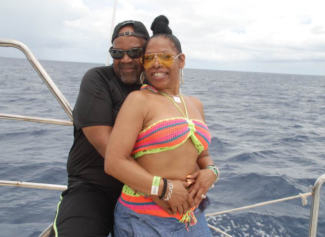As it hit Puerto Rico and the Virgin Islands, Tropical Storm Isaac was on its way to hurricane status before it landed on Haiti and the Dominican Republic.
The forecast still has the storm posing a threat to the Gulf Coast of Florida on Monday, the start of the Republican National Convention in Tampa, which sits on the western coast of Florida.
There is even talk of postponing or relocating the convention if the storm is on target to hit Tampa—a circumstance that could have a major impact on the presidential campaign. But the convention is not at the top of the priority list for Craig Fugate, director of the Federal Emergency Management Agency.
“People are spending a lot of time talking about that,” Fugate said of the convention. “I wish they’d be talking about making sure people in the (Florida) Keys are getting ready and that people in southwest Florida are getting ready,” he told CNN.
The storm could also affect U.S. energy production in the Gulf of Mexico—analysts at Weather Insight, a Thomson Reuters company, are giving it a 50 percent probability of moving into the heart of the oil and gas production region.
After passing through the Caribbean, Isaac is forecast to jump on Monday to a Category 1 hurricane, the lowest on the five-step Saffir-Simpson scale. But its path is still unclear. Some computer models show the storm’s track swinging farther west into the Gulf of Mexico.
“Significant uncertainty remains about the threat Isaac poses to Florida and other portions of the Gulf Coast,” the U.S. National Hurricane Center said.
It said Isaac was centered about 190 miles south-southwest of San Juan, Puerto Rico, on Thursday evening and was moving westward at 16 miles per hour.
Isaac was expected to dump between 8 and 12 inches of rain over parts of Hispaniola, with total accumulations up to 20 inches in some areas, the NHC said, posing a significant threat to Haiti, which is highly prone to flooding and mudslides because of its near-total deforestation.
Haiti, the poorest country in the Americas, still has about 350,000 people living in tents or makeshift shelters more than 2 1/2 years after a devastating earthquake that took more than a quarter of a million lives.
On top of Isaac, Tropical Storm Joyce—the 10th named storm of the Atlantic hurricane season—formed on Thursday over the open Atlantic, according to the hurricane center.

